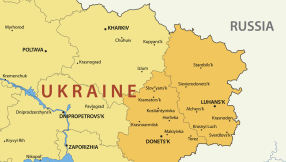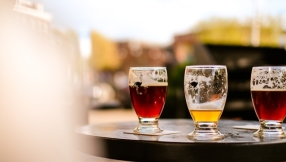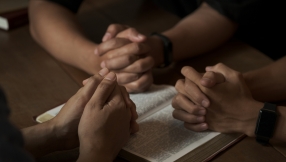It's an unarguable statistic: one out of one dies. But when it comes to when and how someone dies, there are plenty of arguments. Should life be prolonged as long as possible, without regard to its quality? Is it ever permissible to hasten death? Who decides – a court, doctors, the individual in question? And if the medical professionals and the legal system are involved at all, when should they consent?
A few countries, among them Holland, Belgium and Luxembourg, allow doctors to terminate the life of patients at their own request. There are others where physician-assisted suicide is legal; in the US, several states including Oregon and Washington allow patients to request lethal medication. There is a distinction between euthanasia and assisted suicide, though not much difference; in each case someone has to want to die, the state approves and a doctor makes it happen.
But a recent case in Holland has shocked even some in that famously liberal society, which saw more than 5,500 deaths by euthanasia in 2015 or 3.9 per cent of all deaths nationwide. Mark Langedijk, 41, an alcoholic but otherwise healthy, decided to end his life because he could no longer cope with his addiction – and the state agreed. His brother Marcus explained in an article published in the magazine Linda: "Psychologists, psychiatrists, GPs and other health care professionals did their best to help him, but Mark could not explain to anyone what he felt." During the eight years of his treatment he continually relapsed. Marcus said he kept a diary that revealed "a hopeless cocktail of pain, drink, loneliness and sorrow". In the end he died with his brother and parents present, all in tears.
The incident illustrates the expanding reach of Holland's euthanasia culture – a culture that's set to expand even more. Originally designed for people suffering unbearable physical pain and with no hope of a cure, last year the practice saw 56 people end their lives because of "unbearable" mental illness. Dementia patients accounted for 109 euthanasia deaths. One of them was a victim of sexual abuse, in her 20s, who was suffering from "incurable" PTSD – or so the Dutch Euthanasia Commission said.
Holland already allows euthanasia for children, and it has recently announced plans to draft a law allowing elderly people to end their lives when they feel they are "complete".
Underneath the legalities of euthanasia and assisted dying, there is a philosophy – or rather, there are two philosophies. With one, Christians may be able to find some accommodation. The other has to be resisted with every resource at the Church's disposal.
The first is this. Doctors are well aware that life ends, and that its ending is rarely comfortable and pain-free. Our bodies sometimes cling to life past the point at which we would prefer to let them go. The difference between making someone comfortable and hastening their end is not always clear, and we should accept that. At the same time, churches in the UK have been right to resist calls for assisted suicide to be made legal. This is not because we believe people should be forced to cling to life at all costs, but because of the very great difficulty of protecting people who might feel pressured to end their lives early. And very often it is better palliative care that's needed, not an earlier death.
There is a difference, though, between this philosophy that seeks to allow people to end their lives a little early and spare themselves a great deal of pain, and the second philosophy, which is a culture of death. For some advocates of euthanasia, it's just a choice which every individual has a right to make, and no one has the right to stop them. You have an absolute right over your own body, and it's up to you to choose when you don't want to live any longer – and the state is right to assist your choice. This means that if you are depressed, chronically but not terminally ill, elderly or have problems like alcoholism, death is a choice the state should sanction and assist.
The problems with this are obvious and immense. First, if euthanasia is an option, it compromises the need to devote resources to alleviating pain and suffering. So it's inherently biased against the poor, who will always need more help from the state than the rich. It's true – and this is not always sufficiently acknowledged by anti-euthanasia campaigners – that not every pain can be soothed and not everyone can be made happy. But many can, with time, patience, resources and love. State-sponsored euthanasia is a denial of that hope.
Second, it also enshrines in law a pure individualism that runs completely counter to the experience of societies throughout the ages. It isn't just the individual who is affected by this, but his or her family, friends and community – witness the tears of Marc Langedijk's brother and parents.
As one Dutch psychiatrist told the Telegraph in May this year, euthanasia "is a good death by the wish of the person who dies and no-one else. It is an execution of the wish of a patient." But this is to elevate the wishes of the 'patient' – a remarkable word to choose, under the circumstances – above everyone else's, and grant them complete autonomy. This is an extraordinary philosophical departure.
Third – and this is an argument that has greater force with Christians – it undercuts the whole idea of life as a precious gift from God. Yes, there comes a point where we might feel we have had enough of that gift. But by far the majority of people ought to feel they can live out their lives with something still to experience, something still to hope for and some joys still ahead. If they can't, it's generally not because they have had all the living they can expect. It's because they have been failed, by family or friends – though Marc Langedijk's family, it should be said, doesn't appear to have failed him – or by caring agencies.
And the ultimate failure is that of a state that allows someone to think there's no hope, and helps them to die instead of helping them to live.
Follow Mark Woods on Twitter: @RevMarkWoods













